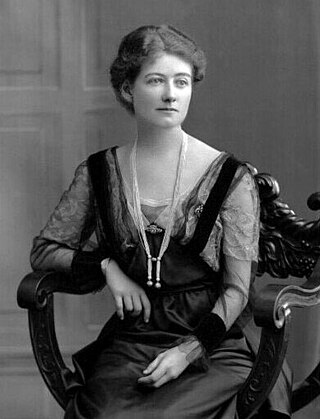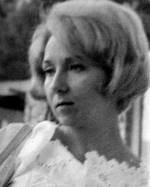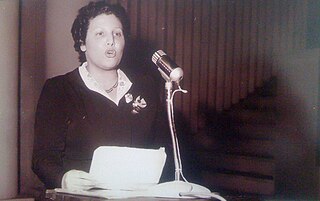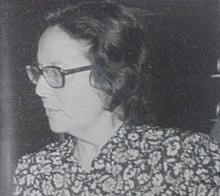Antisemitism has increased greatly in the Arab world since the beginning of the 20th century, for several reasons: the dissolution and breakdown of the Ottoman Empire and traditional Islamic society; European influence, brought about by Western imperialism and Arab Christians; Nazi propaganda and relations between Nazi Germany and the Arab world; resentment over Jewish nationalism; the rise of Arab nationalism; and the widespread proliferation of anti-Jewish and anti-Zionist conspiracy theories.

Mohammed al-Khamis bin Yusef bin Hassan al-Alawi, also known as Sidi Mohammed bin Yusef or Mohammed V, was Sultan of Morocco from 1927 to 1953; he was as Sultan again upon his return from exile in 1955, and as King from 1957 to 1961. Upon the death of his father, Yusef bin Hassan, he succeeded to the throne. He was a member of the 'Alawi dynasty.

Maghrebi Jews or North African Jews are ethnic Jews who had traditionally lived in the Maghreb region of North Africa under Arab rule during the Middle Ages. Established Jewish communities had existed in North Africa long before the arrival of Sephardi Jews, expelled from Portugal and Spain. Due to proximity, the term 'Maghrebi Jews' sometimes refers to Egyptian Jews as well, even though there are important cultural differences between the history of Egyptian and Maghrebi Jews. These Jews originating from North Africa constitute the second largest Jewish diaspora group.

The history of the Jews in Tunisia extended nearly two thousand years and goes back to the Punic era. The Jewish community in Tunisia is no doubt older and grew up following successive waves of immigration and proselytism before its development was hampered by anti-Jewish measures in the Byzantine Empire. The community formerly used its own dialect of Arabic. After the Muslim conquest of Tunisia, Tunisian Judaism went through periods of relative freedom or even cultural apogee to times of more marked discrimination. The arrival of Jews expelled from the Iberian peninsula, often through Livorno, greatly altered the country. Its economic, social and cultural situation has improved markedly with the advent of the French protectorate before being compromised during the Second World War, with the occupation of the country by the Axis. The creation of Israel in 1948 provoked a widespread anti-Zionist reaction in the Arab world, to which was added nationalist agitation, nationalization of enterprises, Arabization of education and part of the administration. Jews left Tunisia en masse from the 1950s onwards because of the problems raised and the hostile climate created by the Bizerte crisis in 1961 and the Six-Day War in 1967. The Jewish population of Tunisia, estimated at about 105,000 individuals in 1948, numbered around 1,000 individuals as of 2019. These Jews lived mainly in Tunis, with communities present in Djerba.
Jews outside Europe under Axis occupation suffered greatly during the Holocaust and World War II.
Hedi Stadlen, better known in Sri Lanka as Hedi Keuneman, was an Austrian Jewish philosopher, political activist, and musicologist. She was one of the handful of European Radicals in Sri Lanka.

Jane Birdwood, Baroness Birdwood, born Joan Pollock Graham, was a British far-right political activist who took part in a number of movements, and was described as the "largest individual distributor of racist and antisemitic material" in Britain. She was the second wife of Christopher Birdwood, 2nd Baron Birdwood.

Milly Witkop(-Rocker) was a Ukrainian-born Jewish anarcho-syndicalist, feminist writer and activist. She was the common-law wife of the prominent anarcho-syndicalist leader Rudolf Rocker. The couple's son, Fermin Rocker, was an artist.

Danielle Casanova was a French communist activist and member of the French Resistance during World War II. A dentist by occupation, she was a high-ranking figure within the Communist Youth and founded its women's organisation Union des Jeunes Filles de France in 1936. Casanova was arrested on 15 February 1942 as she brought coal to Georges Politzer and his wife; she had been involved in organising actions against the German occupiers. First incarcerated at La Santé Prison in Paris, she was transferred to the Fort de Romainville for causing unrest with the help of fellow prisoners. Casanova was deported to Auschwitz on 24 January 1943, where she began working as a dentist at the camp infirmary. She died of typhus shortly thereafter. She was posthumously awarded the Legion of Honour.

Racism and xenophobia have been reported and investigated in Sweden. Sweden has the most segregated labor market of people with foreign background in Europe, when measured against both high and low educational level by OECD statistics. According to the European Network Against Racism, skin color and ethnic/religious background have significant impact on an individual's opportunities in the labor market.
Georges Adda, was a Tunisian politician and trade unionist, and a former leader of the Tunisian Communist Party.

Racism has been called a serious social issue in French society by some commentators despite public belief that racism does not exist on a serious scale in France. Antisemitism, as well as prejudice against ethnic Muslims and other non-Christians, have a long history. Acts have been reported against members of resident minority groups including Jews, Berbers, Arabs and Asian people. 2019 police data indicates a total of 1,142 acts classified as "racist" without a religious connotation. Some racist acts have a religious connotation: the same data indicates 1,052 anti-Christian, 687 anti-Jewish and 154 anti-Muslim acts were perpetrated in 2019 for a total population of over 67 million. Although France's Muslim population far exceeds its Jewish population according to private studies, antisemitic acts far outnumbered Islamophobic acts in 2019 according to official government statistics.
Eva Bacon, born Eva Goldner, was a socialist and feminist based in Brisbane, Australia, who was most active between the 1950s and the 1980s. Raised in Austria and a member of several leftist political organisations in her youth, Eva Goldner escaped Nazi occupied Austria in 1939, eventually migrating to Australia. Goldner remained involved in local and international politics and joined the Communist Party of Australia (CPA), marrying fellow member Ted Bacon in 1944. Throughout her career Bacon was an active member of the CPA, and the Union of Australian Women (UAW), where she was heavily involved in International Women's Day campaigns, including attending the 1975 UN World Conference on Women in Mexico celebrating International Women's Year. Bacon was also an active member of the Women's Electoral Lobby (WEL), the Women's International League for Peace and Freedom (WILPF). She was passionate about childcare issues, and through her political work clashed particularly with conservative Queensland Premier Joh Bjelke-Petersen.
Antisemitism in France has become heightened since the late 20th century and into the 21st century. In the early 21st century, most Jews in France, like most Muslims in France, are of North African origin. France has the largest population of Jews in the diaspora after the United States—an estimated 500,000–600,000 persons. Paris has the highest population, followed by Marseilles, which has 70,000 Jews. Expressions of antisemitism were seen to rise during the Six-Day War of 1967 and the French anti-Zionist campaign of the 1970s and 1980s. Following the electoral successes achieved by the extreme right-wing National Front and an increasing denial of the Holocaust among some persons in the 1990s, surveys showed an increase in stereotypical antisemitic beliefs among the general French population.
Racism in Poland in the 20th and 21st centuries has been a subject of extensive study. Ethnic minorities made up a greater proportion of the country's population from the founding of the Polish state through the Second Polish Republic than in the 21st century, when government statistics show 94% or more of the population self-reporting as ethnically Polish.

Colette Anna Grégoire was an Algerian poet of French origin. She married an Algerian, considered herself Algerian, and was involved in the struggle for Algeria's independence from France. Her work shows her love of the Aurès Mountains where she grew up, and her strong political beliefs.
Alice Wosikowski was a German politician who became a member of the Hamburg Parliament between 1927 and 1933. After 1933 she became a resistance activist: much of her life during the twelve Nazi years was spent in government detention institutions.

Nabiha Ben Miled was a pioneering Tunisian women's rights activist and nationalist. She was a leading voice in the press speaking for women's rights and Tunisian independence from French colonialism. She served as president of the Union of Tunisian Women from 1952 to 1963 and wrote articles in favor of Tunisia's independence.

William Arthur Watkin Strachan was a leading British communist, pioneer of black civil rights in Britain, human rights and anti-colonial activist, charity worker, newspaper editor, and British legal expert. He is most noted for his achievements as a bomber pilot with the Royal Air Force (RAF) during the Second World War, and for his reputation as a highly influential figure within Britain's black communities.











